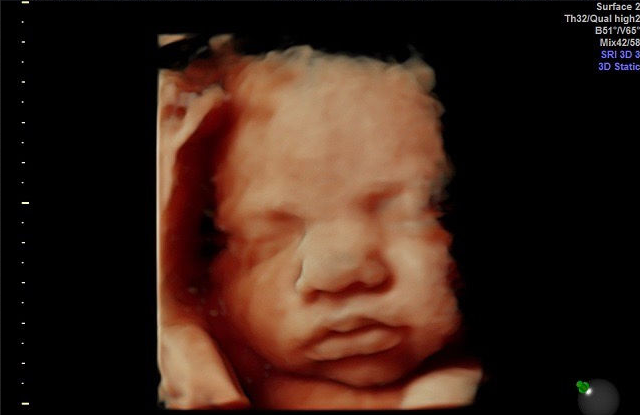Texas could become the biggest state to crack down on the underground abortion industry this week.
The Texas Legislature is expected to pass the Woman and Child Protection Act (HB 7 by Representative Jeff Leach, sponsored by Senator Bryan Hughes). The bill would target abortion pill companies and activists with $100,000 lawsuits if they attempt to illegally kill preborn babies in Texas, even if the lawbreakers hide in liberal states.
However, opponents (including groups against abortion) argue that this policy isn’t needed, or that it takes the wrong approach.
What’s the truth?
The crisis:
Over 19,000 Texans order abortion pills online each year. They’re shipped and trafficked from other countries and liberal states.
LifeNews is on GETTR. Please follow us for the latest pro-life news
The pills are deadly for babies and dangerous for women. The first pill in a chemical abortion (mifepristone) kills the preborn child by starving her to death. The second pill (misoprostol) expels the baby’s body from the uterus. Additionally, 1 in 10 women who take abortion pills require emergency care afterward.
 Current law:
Current law:
Abortion is illegal in Texas, except in tragic cases when both the mother and child would pass away without intervention.
But existing policies aren’t enough to stop abortion activists based outside of Texas who are mailing the deadly pills here.
The Woman and Child Protection Act fills this enforcement gap by allowing citizens to sue abortion activists and businesses, no matter where they are, if they attempt to kill Texan babies.
 How the Woman and Child Protection Act changes the game:
How the Woman and Child Protection Act changes the game:
Allows Texans to shut down companies that sell abortion pills.
Lets women who are harmed by illegal abortions sue pill traffickers.
Helps Pro-Lifers stop abortionists who are hiding in liberal states.
Does not penalize the pregnant mother.
Protects legitimate medical uses, including treatment for ectopic pregnancies, miscarriages, and emergencies.
Does not apply to doctors or hospitals in Texas, since they are already regulated under other state laws for elective abortions.
Debunking misconceptions:

Truth: Abortion groups aren’t shy about selling pills online and shipping them here. We have to block abortion pills at the source.
In several committee hearings this year, pregnancy center workers have shared horror stories about pregnant women walking through their doors with deadly pills in their hands.
Abortion activists stated that the Woman and Child Protection Act is the greatest threat to their underground network–and they’re right! That’s why Texas must pass this bill.

Truth: Citizen lawsuits like these are already allowed for issues like Medicaid fraud. HB 7 takes existing procedures and applies them to abortion. This is not vigilantism; this is enforcing just and legitimate state law to save lives.

Truth: Lawsuits were not filed under the Texas Heartbeat Act because it was so effective in stopping abortionists in Texas. Laws exist to block certain actions from happening in the first place, not just to punish criminals after they occur. Abortion facilities followed the law when it took effect. We anticipate the same will happen for out-of-state abortion groups when the Woman and Child Protection Act passes.

Truth: The bill includes three clear provisions protecting the manufacturing, delivery, and provision of medication used to treat ectopic pregnancies, miscarriages, and women in life-threatening medical emergencies. It also allows these drugs to be used for the limited other legitimate medical uses.
The Woman and Child Protection Act also exempts licensed doctors and hospitals practicing solely in Texas because they are already covered by other Texas regulations and their enforcement mechanisms. HB 7 narrowly focuses on out-of-state groups and activists that are bypassing our life-saving state laws.
HB 7 is entirely consistent with and bolsters the Life of the Mother Act (SB 31; 89-R) passed earlier this year just for this purpose.

Truth: Opponents say this because a new part of the bill was added after criticism raised in the House hearing. The committee substitute requires that the person who wins a lawsuit sends 90% of the funds to charity (unless the person bringing the case is the pregnant woman or the preborn child’s family). Critics wrongly claim that Texas Right to Life made this provision in the bill so that we can receive the money from lawsuits.
In reality, Texas Right to Life doesn’t want any lawsuits to happen in the first place because we don’t want any preborn babies to be killed.
The intended outcome is that out-of-state abortion activists refuse to send pills into Texas because of the legal threat. That should be all Pro-Life groups’ goal.
However, if an abortion group or activist does break the law and funds are awarded, the policy says that the person who brought the case cannot choose a charity that he/she has financial ties to (Section 171A.104(b)(2)).
Texas should celebrate the Woman and Child Protection Act (HB 7) and the fact that women and preborn children will better be defended from the deadly threat of mail-order abortion pills. If House Bill 7 does not pass, over 38,000 babies could die before lawmakers meet again in 2027.
The post Texas is Fighting to Stop Dangerous Abortion Pills That Kill Thousands of Babies appeared first on LifeNews.com.
Click this link for the original source of this article.
Author: Texas Right to Life
This content is courtesy of, and owned and copyrighted by, https://www.lifenews.com and its author. This content is made available by use of the public RSS feed offered by the host site and is used for educational purposes only. If you are the author or represent the host site and would like this content removed now and in the future, please contact USSANews.com using the email address in the Contact page found in the website menu.





